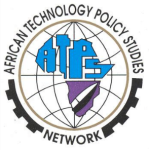Improving Agricultural Productivity and Climate Change Resilience Using the LandInfo Mobile App Technology
Project Duration: 6 Months, 2016
Donor: African Forum for Agricultural Advisory Services (AFAAS)
Contacts: Dr. Nicholas Ozor, Executive Director, ATPS
Email: executivedirector@atpsnet.org
Principal Investigator: Dr. Nicholas Ozor
Project Value: US$ 10,000
Background
The The African Technology Policy Studies Network (ATPS) in collaboration with the United States Department for Agriculture (USDA) and other partners have developed an innovative mobile app called the LandInfo that allows inpiduals and organizations use a mobile phone to determine land potentials at any specific location based on local and global knowledge and information. The LandInfo therefore provides knowledge and information on soil and climate through a mobile phone which then enables farmers take decision on the most suitable crop for any given piece of land and under the prevailing climatic conditions. The LandInfo is freely accessible and can be used anywhere. It then becomes a veritable tool that can complement the work of extension workers in providing advisory services relating to soils, climate and crops to be grown by rural farmers.
Objectives
The project aims to address a capacity development need identified in most Africa’s national capacity development strategies by building the inpidual and institutional capacity to use emerging Information and Communication Technologies (ICTs) such as mobile phone technology as a tool for providing useful information to enhance effective decision-making for agricultural productivity, sustainable land-use management and climate change resilience. Specifically, the project aims to:
(i) Create awareness and sensitize the agricultural extension agents (EAs) and contact farmers in Meru County in Kenya about the LandInfo mobile app technology and its potentials; and
(ii) Build the capacity of EAs and contact farmers in the selected county to effectively deploy the LandInfo mobile app for agricultural production, land use planning and climate change resilience.
Expected Outputs
- About 50 EAs and 50 contact farmers receive direct training on the use of the LandInfo mobile app.
- A LandInfo farmer guide on the step-by-step use and application of the LandInfo mobile app.
- Communication materials such as LandInfo fliers produced.
- One TV show on the use of LandInfo targeting farmer/extension agent audience platforms.
- Video documentary on the sensitization and capacity building activities developed.
- A proceeding report of the sensitization and capacity building activities submitted.
Expected Outcomes
- Stakeholders within the AFAAS network (EAs and contact farmers) deepen their knowledge of biophysical characteristics of soils, land cover, and rangeland ecosystems;
- Stakeholders gain knowledge on the LandInfo mobile app operation, its application in the field and hence adopt the technology;
- About 14,500 other farmers in Meru County and beyond reached with extension message on LandInfo through the multiplier effect from the extension visits and farmer-to-farmer extension models. It is expected therefore that each extension agent will be able to reach about 240 farmers in a year and an average of 50 extension agents that will be trained will reach about 12,000 farmers in a year. On the other hand the average of 50 lead farmers that will be trained will be able to reach 2,500 other farmers. In all, at least a total of about 14,500 farmers will be reached in one year with the extension message on Landinfo mobile application to support farm decision-making for agricultural productivity and climate change resilience.
- Stakeholders utilize the new knowledge and skills to take informed decisions on land use planning and farm management to sustainably increase agricultural productivity and adapt to climate change impacts;
- Farmers instantaneously access the best available soil and climatic information and interpret it in the context of local socio-economic conditions and values, including crop preferences for a particular soil;
- The county government and other development agencies use the app to identify where supports for development efforts are likely to have the greatest impacts;
- Improved targeting of investments on food security and other land based economic growth strategies by focusing on areas most likely to respond to interventions;
- Contributes to future app improvement by providing valuable feedbacks on the app development and upgrades; and
- Creation of business opportunities for the private sector actors to use the LandInfo app to support large scale decision-making in agriculture, land use planning and climate change resilience.
The project is designed to complement ATPS’s existing strategy for promoting the generation, dissemination and use of science, technology, and innovative (STI) for sustainable development in Africa as enshrined in the ATPS Phase VII Strategic Plan 2013-2018. Most specifically it addresses the technological and capacity needs identified by ATPS Network Members as well as AFAAS and The Forum for Agricultural Advisory Services – Kenya (KeFAAS) networks. The project will strengthen the ATPS, AFAAS and KeFAAS programs to develop and share technology and innovations in order to build the capacity of stakeholders for achieve sustainable development.
Project outputs.
1. Video: LandInfo Mobile App Training in Meru County.
ATPS conducted a two-day training workshop for farmers and extension agents on the use of the LandInfo mobile app technology at Kaguru Agricultural Training Center from 15th -16th December 2016.

